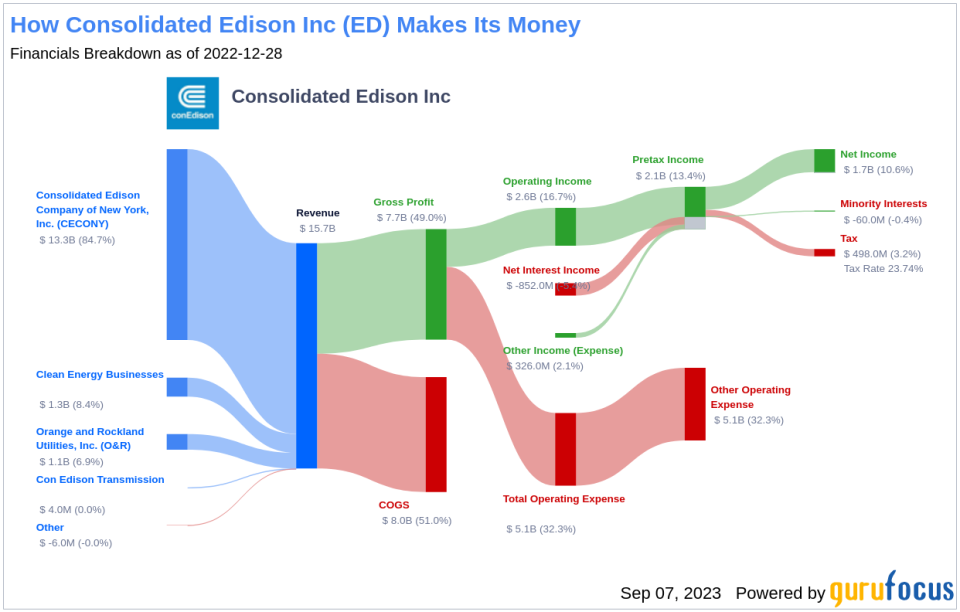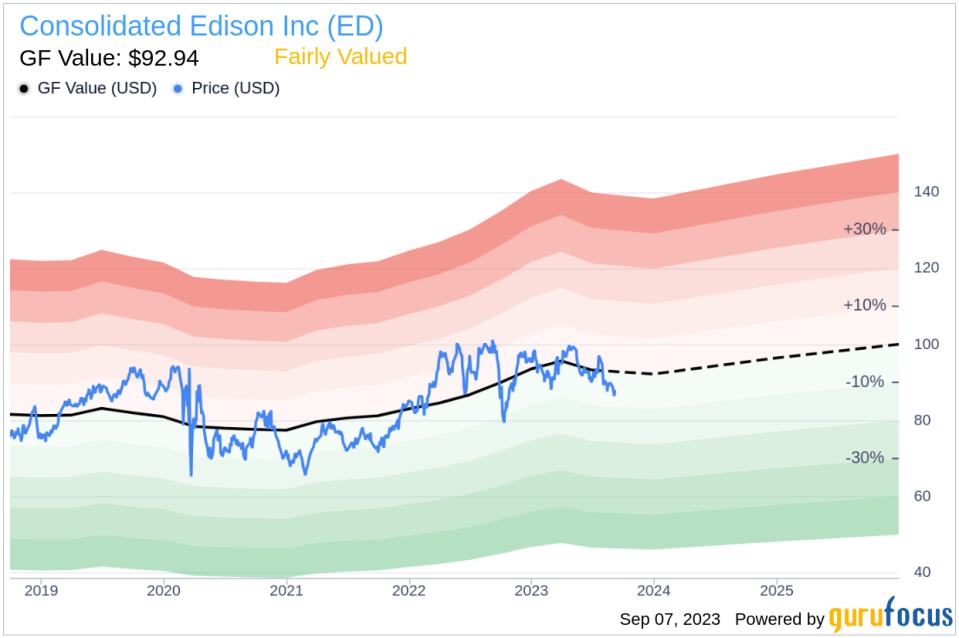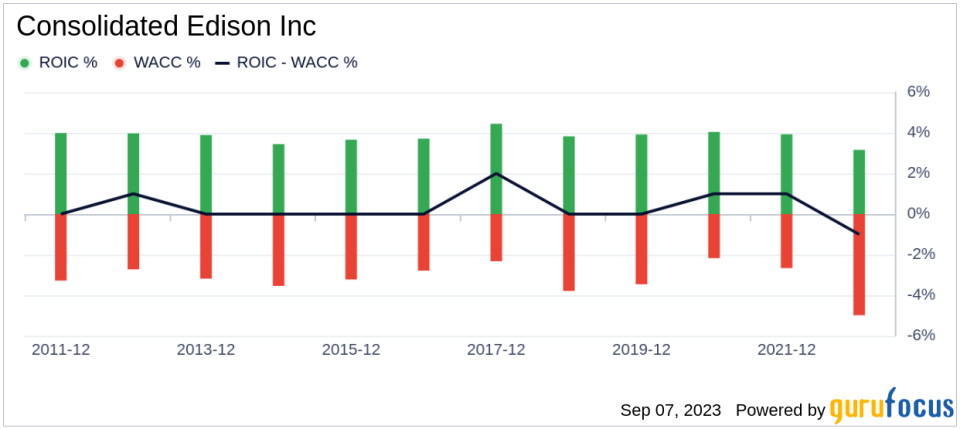Consolidated Edison (ED): A Balanced Analysis of Its Market Value
Consolidated Edison Inc (NYSE:ED) experienced a daily gain of 1.77%, but a 3-month loss of -5.21%. With an Earnings Per Share (EPS) of 6.95, the question arises: is the stock fairly valued? This article provides a comprehensive valuation analysis to answer this question. Read on for an insightful exploration of Consolidated Edison's intrinsic value.
Company Introduction
Consolidated Edison, a holding company for Consolidated Edison of New York, or CECONY, and Orange & Rockland, or O&R, provides steam, natural gas, and electricity to customers in southeastern New York, including New York City, and small parts of New Jersey. The company's earnings are primarily generated from these utilities. With a stock price of $88.34 and a GF Value of $92.94, Consolidated Edison presents an interesting case for valuation analysis.
Understanding GF Value
The GF Value is a proprietary measure of a stock's intrinsic value, based on historical trading multiples, a GuruFocus adjustment factor, and future business performance estimates. The GF Value Line provides a snapshot of the fair value at which the stock should ideally trade. If the stock price is significantly above the GF Value Line, it is overvalued, and its future return is likely to be poor. Conversely, if it is significantly below the GF Value Line, its future return will likely be higher.
Consolidated Edison's stock appears to be fairly valued based on the GuruFocus Value calculation. With a market cap of $30.50 billion at its current price of $88.34 per share, the long-term return of its stock is likely to be close to the rate of its business growth.
Link: These companies may deliver higher future returns at reduced risk.
Financial Strength
Investing in companies with low financial strength could result in permanent capital loss. Therefore, a company's financial strength should be carefully reviewed before deciding to buy shares. Looking at the cash-to-debt ratio and interest coverage can give a good initial perspective on the company's financial strength. Consolidated Edison has a cash-to-debt ratio of 0.08, ranking worse than 74.53% of 479 companies in the Utilities - Regulated industry. Based on this, GuruFocus ranks Consolidated Edison's financial strength as 4 out of 10, suggesting a poor balance sheet.
Profitability and Growth
Companies that have been consistently profitable over the long term offer less risk for investors. Consolidated Edison has been profitable 10 times over the past 10 years. Over the past twelve months, the company had a revenue of $15.50 billion and an Earnings Per Share (EPS) of $6.95. Its operating margin is 16.69%, ranking better than 60.48% of 496 companies in the Utilities - Regulated industry. Overall, the profitability of Consolidated Edison is ranked 7 out of 10, indicating fair profitability.
One of the most important factors in the valuation of a company is growth. The average annual revenue growth of Consolidated Edison is 4.9%, ranking worse than 65% of 480 companies in the Utilities - Regulated industry. The 3-year average EBITDA growth is 2.3%, ranking worse than 57.99% of 457 companies in the same industry.
ROIC vs WACC
Return on invested capital (ROIC) measures how well a company generates cash flow relative to the capital it has invested in its business. The weighted average cost of capital (WACC) is the rate that a company is expected to pay on average to all its security holders to finance its assets. If the ROIC exceeds the WACC, the company is likely creating value for its shareholders. During the past 12 months, Consolidated Edison's ROIC was 3.3, while its WACC came in at 5.29.
Conclusion
In summary, the stock of Consolidated Edison appears to be fairly valued. The company's financial condition is poor, and its profitability is fair. Its growth ranks worse than 57.99% of 457 companies in the Utilities - Regulated industry. To learn more about Consolidated Edison stock, you can check out its 30-Year Financials here.
To find out the high quality companies that may deliver above average returns, please check out GuruFocus High Quality Low Capex Screener.
This article first appeared on GuruFocus.




